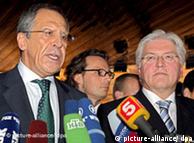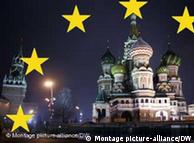 The US and Russia: the limits of a superpowerhttp://www.tni.org/detail_page.phtml?act_id=18586Boris KagarlitskySocialist Worker, 20 August 2008
The US and Russia: the limits of a superpowerhttp://www.tni.org/detail_page.phtml?act_id=18586Boris KagarlitskySocialist Worker, 20 August 2008The war between Russia and Georgia has shown the US that its power and influence in the region is limited, but it has also fed the Russian imperialist agenda in the Caucasus, writes Boris Kagarlitsky
Internationally the war is a big blow for the US, at least in Central Europe and the Caucasus. It has suddenly shown that the influence and control of the sole superpower is limited. There are situations when the superpower cannot protect its client states such as Georgia.
But this is a difficult situation for the left in Russia because there is no side to sympathise with. On the one hand, we – the majority of the left in Russia – totally oppose any attempts to present Mikheil Saakashvili’s Georgia as a victim. Not just because technically they were the first to start an invasion into South Ossetia, but also because of the nature of this regime, which is the closest ally of George Bush in the area.
In fact Georgia is becoming more important for US strategy than, for example, Turkey or Azerbaijan, which have started to demonstrate political independence in certain aspects of their decision making.
So the defeat of Georgian troops is, in a certain ironic sense, good news for Georgians because it could well provoke more resistance to the Saakashvili regime and make many Georgians rethink the relationship between their country and the US. I hope Georgian society will draw lessons from what has just happened.
But on the other hand, there is no way to present Russia as just some kind of “peacekeeping force” which has to “punish the aggressor”, as Russian officials pretend. First of all, there is no doubt that Russian leaders have their own imperialist agenda in the Caucasus.
DeeperWe know that Russian troops moved into Georgia much deeper than was necessary from a military point of view. The Russian generals wished to provide a show of strength and to play up to jingoistic attitudes within Russian society.
Neither can we sympathise very much with the South Ossetian regime, which is also authoritarian and corrupt.
It is very closely involved with smuggling fake vodka into Russia. Hundreds of people die each year because they are poisoned by this fake vodka. So in that sense Russia has lost more people to South Ossetia through vodka than through actual fighting with Georgian troops!
So we see the war as an unjust war – an imperialist war – from every side. We can only sympathise with the civilian populations on both sides of the divide, in Georgia and in South Ossetia, which have been caught in the crossfire.
I think the consequences of the war will be more dramatic in Georgia than in Russia.
The Russian government has been strengthened by this conflict, domestically and internationally, while in Georgia the regime has been weakened.
However, I don’t think the impact of this war on Russian society will be very deep. Everyone understands that it was the kind of war that hardly could have been lost, given the balance of forces.
Also for cultural reasons, Russians tend to love Georgians. An older generation of Russians in particular love Georgian wine, they love Georgian cuisine, and cinema and so on. So the attempts to generate some sort of anti-Georgian racist or nationalist feeling in Russia have so far by and large failed.
There is one very strange positive side effect of this war, which will make a real impact upon the Russian economy and society, which is that it seems that Russian entry into the World Trade Organisation (WTO) will be blocked.
I see this as very good news – it means there will be a lot of jobs saved in Russia and it will be good for the Russian working class.
BlockThe US administration has already raised doubts about Russian entry into the WTO. Both presidential contenders – Barack Obama and John McCain – spoke negatively about Russian WTO entry. It’s very clear that Georgia, which is in the WTO already, will not be an easy negotiator for Russia. Also Ukraine is now at odds with Russia and will try to block its entry.
We should not forget that this war happened in the context of a global economic crisis which is only just beginning.
Before the war there was a debate inside the left in Russia about whether the war was actually going to happen. I have to admit that I kept saying it was probably not going to happen, that both sides would be reasonable enough to stop at the very last moment. I proved to be wrong.
But my colleague Vasily Koltashov, who is the head of the economic research group at the Institute for Globalisation Studies, pointed out that every time you have a structural crisis within capitalism, the number of military conflicts increases. He proved to be right!
The conflict in the Caucasus is a sign of a crisis for the neoconservative strategy of imperial advance for the US.
The whole “war on terror” is a dead end and now this is becoming visible. Although the US can support some technical victories in Iraq they cannot find a strategy that will finish the war – there is no “plan B”.
They have so far succeeded in lowering the number of US casualties. But the question is whether you can get to a situation where you don’t have to have US troops fighting there.
So the success of the so called “surge” in terms of diminishing the number of casualties doesn’t answer the strategic question of what to do with Iraq.
And with the crisis of the Georgian war, with the inability of the US to protect its client state from an attack by another power, that creates a situation where a lot of other clients of the US will have second thoughts.
Boris Kagarlitsky is director of the Institute for Globalisation Studies in Moscow and a Fellow of the Transnational Institute.
















